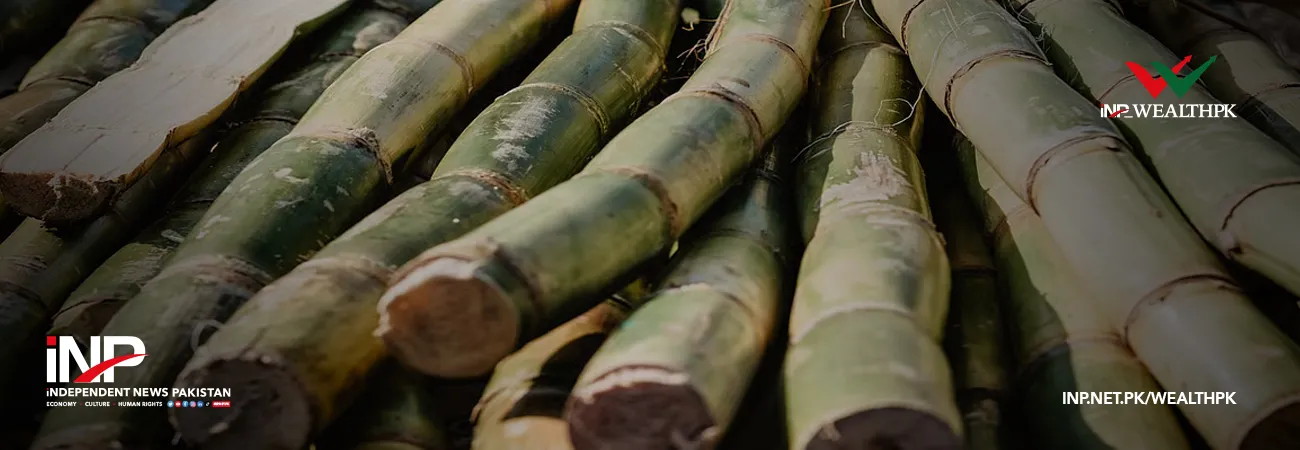INP-WealthPk
By Samia Khalid
ISLAMABAD, Oct 28 (INP-WealthPK): The main thrust of Chinese investment in Pakistan's energy sector has been on producing clean energy by utilizing the sufficient availability of resources such as solar, wind, and hydro. These investments are part of the multibillion-dollar China-Pakistan Economic Corridor (CPEC) project.
Pakistan has lately been one of the top countries in terms of installing new hydropower capacity.
China is helping Pakistan boost its renewable energy generation as half of the CPEC investments comprise energy projects. Work on projects with 1,300MW capacity has already been completed.
Pakistan has over 80 percent capacity to generate renewable energy from hydro-marine, and such projects can generate clean and low-cost energy as compared to other renewables. Currently, there have been several hydropower projects being executed in different parts. Karot Hydropower Project is being constructed in Azad Jammu Kashmir with a capacity of 720MW. Almost 90 percent of the work has been completed on this project.
The Suki Kinari Hydropower Project (KP) is being executed in the Mansehra district of Khyber Pakhtunkhwa with a total capacity of 870MW. Almost 90 percent of construction work has been completed on the project, which is likely to be completed by April 2022. There are four other clean energy projects to be executed under CPEC.
Pakistan aims to have a 30 percent share of renewable energy in the total electricity mix by the year 2030.
 Renewable Capacity -2020
According to the International Renewable Energy Agency (IRENA), China and Pakistan have 28 percent and 6 percent solar energy production capacity, respectively.
Pakistan's industrial and commerce market has entered a new age of 500W+ by adopting sophisticated photovoltaic (PV) modules manufactured by a Chinese company.
JinkoSolar, in collaboration with its Pakistani partner Hadron Solar, will supply 775 Tiger Pro 500W+ modules to be placed on the roof of a pharmaceutical facility in Pakistan. To fulfil the factory's needs, these modules will create 633MWh of power yearly for the next 25 years. Furthermore, it would only take three years to recoup expenditures. The company will work with Pakistan's Energy Training and Research Centre (ETRC) to train people who could contribute to the country’s renewable energy growth. The company will provide expert technical assistance for the training program, which will not only hasten the transition to renewable energy sources but also create jobs in the solar power sector.
Despite having abundant renewable energy resources and significant growth potential, Pakistan has struggled to raise the necessary funds to tap the potential. However, it can do so with the help of Chinese expertise.
Such cooperation would lead to a win-win situation for both China and Pakistan, and would also help boost regional socio-economic progress.
Renewable Capacity -2020
According to the International Renewable Energy Agency (IRENA), China and Pakistan have 28 percent and 6 percent solar energy production capacity, respectively.
Pakistan's industrial and commerce market has entered a new age of 500W+ by adopting sophisticated photovoltaic (PV) modules manufactured by a Chinese company.
JinkoSolar, in collaboration with its Pakistani partner Hadron Solar, will supply 775 Tiger Pro 500W+ modules to be placed on the roof of a pharmaceutical facility in Pakistan. To fulfil the factory's needs, these modules will create 633MWh of power yearly for the next 25 years. Furthermore, it would only take three years to recoup expenditures. The company will work with Pakistan's Energy Training and Research Centre (ETRC) to train people who could contribute to the country’s renewable energy growth. The company will provide expert technical assistance for the training program, which will not only hasten the transition to renewable energy sources but also create jobs in the solar power sector.
Despite having abundant renewable energy resources and significant growth potential, Pakistan has struggled to raise the necessary funds to tap the potential. However, it can do so with the help of Chinese expertise.
Such cooperation would lead to a win-win situation for both China and Pakistan, and would also help boost regional socio-economic progress.





